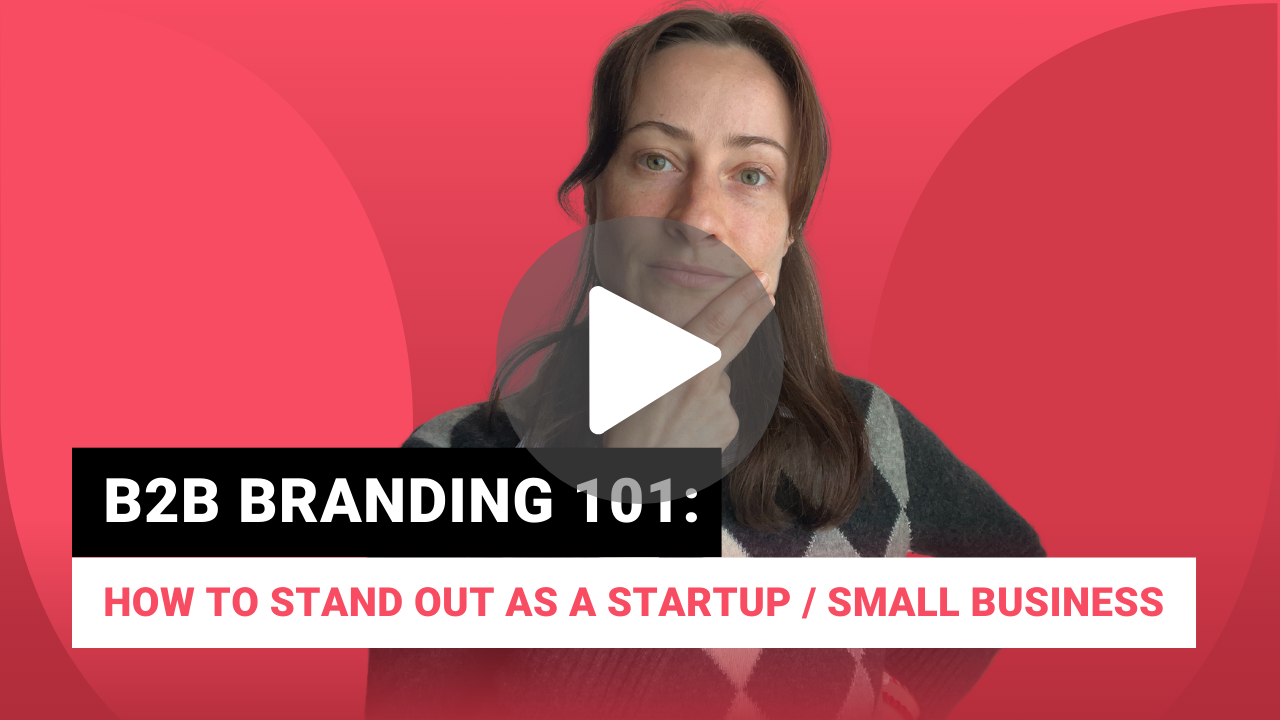5 B2B Branding Tips to Help Small Businesses Stand Out Online
Founder & Chief Executive Officer
4 minutes
In B2B, just like in B2C, you’re selling to people.
To do so effectively, you need more than a logo - you need a brand. And a brand isn’t just a logo or color scheme. It’s the perception people have about your business — how you look, sound, and make them feel at every touchpoint. It’s your reputation, personality, and promise, all wrapped into one. I’m not talking about a behemoth brand guide before you’ve scaled. Today, I’ll share 5 branding tools & tips to help you get started.
The true cost of not investing in them is lost opportunities. So let’s dive in…
This article is also available as a video on our YouTube channel:
1. Define your Unique Selling Points
Your brand identity starts with differentiation and positioning in your industry and against your competitors. The smaller your business, the more valuable it is to specialize and find your niche. The clearer you are about who you help and how you’re different, the stronger your brand positioning becomes.
Ask yourself:
- How do we stand out from competitors?
- What do our customers appreciate about us?
If you don’t know, ask your clients. For example, if they say they love your direct, no-nonsense approach, make that a key part of your brand personality. That’s actually part of the branding of my marketing agency. My clients loved my no-bullshit approach and I surrounded myself with te
2. Define your messaging early on, then adapt if needed
Your messaging should reflect your company’s principles and USPs, and connect with your audience at the same time. In B2B, businesses often choose bland, overly-complicated jargon. That’s not how you speak to your customers, right?
Effective messaging always starts with customer pain points — what problems do they have, and how does your business solve them better or faster? This should shine through in every piece of communication, from your website headline to your LinkedIn description.
For example:
Instead of: “We disrupt digital marketing with cutting-edge strategies”
Try: “We make digital marketing simple and effective, so you see real results.”
If your clients prefer a straight-to-the-point, results-driven approach, your messaging should reflect that. Avoid jargon unless your industry expects it, and always aim for clarity. Looking on places like Reddit and LinkedIn will give you an idea of how your customers talk about your industry. Use it to forge your own message.
3. Invest in a basic brand kit
Your logo, colors, fonts, and tone should be recognizable across all platforms - website, social media, email, even invoices. If your brand is structured and professional, your emails should be, too. If it’s bold and informal, don’t suddenly become robotic in your LinkedIn posts. Small businesses often invest in branding guides but then fail to apply them consistently. A strong brand is instantly recognizable because it looks, sounds, and feels the same across every touchpoint. This is key when the time to scale comes.
As a minimum, your basic brand kit should cover: logo, color palette, typography, tone of voice guidelines, and basic rules for logo usage, spacing, and background.
4. Invest in storytelling
Remember about selling to people? Well, people remember stories more than statistics. Share your journey, your struggles, and why you started your business in the first place. Then share statistics as part of success stories.
For example: Instead of “We provide marketing services to small businesses”, tell a story like:
"We started because we saw too many small businesses wasting money on scattered marketing tactics. We wanted to change that - so we built a team that chooses the right fights and invests every cent wisely to get the desirable results."
5. Use your branding tools everywhere
A brand isn’t just a logo or tagline - it’s a set of behaviors. If your brand is all about efficiency, your communication should be fast and clear. If your brand is about innovation, show that in how you solve problems. Every customer touchpoint should reinforce what your company stands for. Otherwise you’re just contributing to the endless barrage of digital blah-blah.
A strong, clear identity makes your business memorable, builds trust, and at the end of it all - drives more sales.
Small businesses that commit to branding from day one are the ones that grow and win in the long run.
And don’t forget that brands that win often appeal to both logic and emotion. Do you stand for sustainability, transparency, or innovation? When your values resonate with your audience’s values, you build trust faster.
Every cent you invest in branding is well returned, if you start with these 5 things. Let me know if you would add anything to the list!
Oh, and as usual - I am here to deliver your free marketing audit, including my two cents about your current branding. Find the link below!
